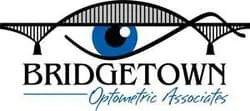Myopia, or nearsightedness, is a type of prescription that causes the distance to be blurry; the degree of blur depends on the strength of the prescription. Progressive myopia is when a person’s nearsightedness is worsening each year, often more than what is expected. This typically occurs in younger individuals as they are going through growth spurts. As a young individual is growing taller, their eye is also elongating and contributing to an increase in their prescription. Our optometric providers expect some change to occur with a growth spurt but if the change occurring too fast or too much has changed, then we must address it.
A person may report more distance blur more frequently when their myopia is changing too quickly. They will require more examinations and lenses will be changed more frequently because of their progression. The person will also become more reliant on their glasses (or contact lenses) because of the strength of the prescription. As a person becomes more myopic, they are more at risk for glaucoma, retinal holes or tears, macular complications and more.
During a comprehensive examination, our providers will determine a person’s current degree of myopia and assess how much it has changed. If it is found to be progressive, then the provider will discuss the treatment options that potentially can decrease any future progression by half. Those treatment options may include:
- -Diluted dilation drops (Atropine 0.05, 0.025, 0.01%) that are used each night prior to bed. The low concentration has yielded good outcomes to slow myopic progression while keeping side effects from using a dilation drop low.
- -Multifocal contact lenses (type and brand will be determined by prescription) that create a mid-peripheral blur that is not noticeable by the wearer but decrease the eye’s stimulus to grow. The lenses must be worn most days of the week to get adequate treatment.
- -Ortho-K hard contact lenses that are worn at night while sleeping. These lenses also create a mid-peripheral blur that is noticeable by the wearer but allow a person to be able to see during the day without the aid of glasses or contact lenses.
If you have concerns regarding progressive changes to your or your child’s myopia, or nearsightedness, please discuss this with your Bridgetown optometric provider at the time of examination.

